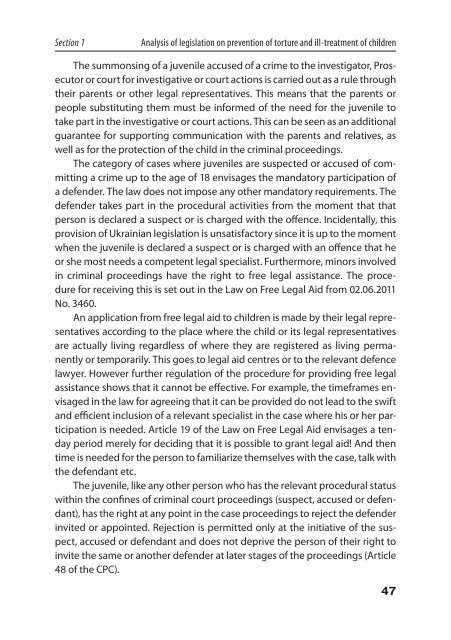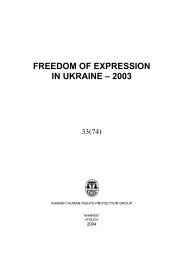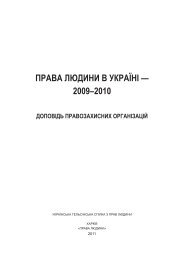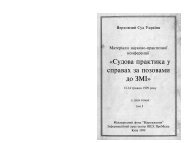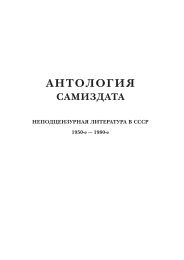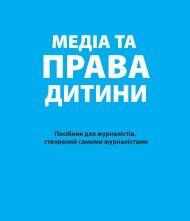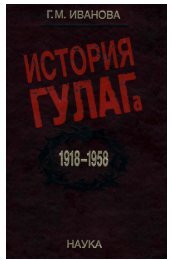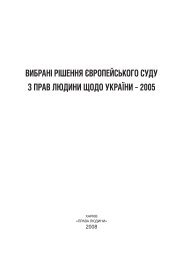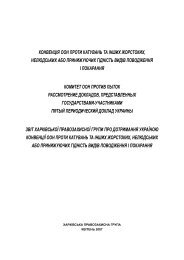TORTURE AND ILL-TREATMENT OF CHILDREN IN UKRAINE
TORTURE AND ILL-TREATMENT OF CHILDREN IN UKRAINE
TORTURE AND ILL-TREATMENT OF CHILDREN IN UKRAINE
- No tags were found...
Create successful ePaper yourself
Turn your PDF publications into a flip-book with our unique Google optimized e-Paper software.
Section 1Analysis of legislation on prevention of torture and ill-treatment of childrenThe summonsing of a juvenile accused of a crime to the investigator, Prosecutoror court for investigative or court actions is carried out as a rule throughtheir parents or other legal representatives. This means that the parents orpeople substituting them must be informed of the need for the juvenile totake part in the investigative or court actions. This can be seen as an additionalguarantee for supporting communication with the parents and relatives, aswell as for the protection of the child in the criminal proceedings.The category of cases where juveniles are suspected or accused of committinga crime up to the age of 18 envisages the mandatory participation ofa defender. The law does not impose any other mandatory requirements. Thedefender takes part in the procedural activities from the moment that thatperson is declared a suspect or is charged with the offence. Incidentally, thisprovision of Ukrainian legislation is unsatisfactory since it is up to the momentwhen the juvenile is declared a suspect or is charged with an offence that heor she most needs a competent legal specialist. Furthermore, minors involvedin criminal proceedings have the right to free legal assistance. The procedurefor receiving this is set out in the Law on Free Legal Aid from 02.06.2011No. 3460.An application from free legal aid to children is made by their legal representativesaccording to the place where the child or its legal representativesare actually living regardless of where they are registered as living permanentlyor temporarily. This goes to legal aid centres or to the relevant defencelawyer. However further regulation of the procedure for providing free legalassistance shows that it cannot be effective. For example, the timeframes envisagedin the law for agreeing that it can be provided do not lead to the swiftand efficient inclusion of a relevant specialist in the case where his or her participationis needed. Article 19 of the Law on Free Legal Aid envisages a tendayperiod merely for deciding that it is possible to grant legal aid! And thentime is needed for the person to familiarize themselves with the case, talk withthe defendant etc.The juvenile, like any other person who has the relevant procedural statuswithin the confines of criminal court proceedings (suspect, accused or defendant),has the right at any point in the case proceedings to reject the defenderinvited or appointed. Rejection is permitted only at the initiative of the suspect,accused or defendant and does not deprive the person of their right toinvite the same or another defender at later stages of the proceedings (Article48 of the CPC).47


